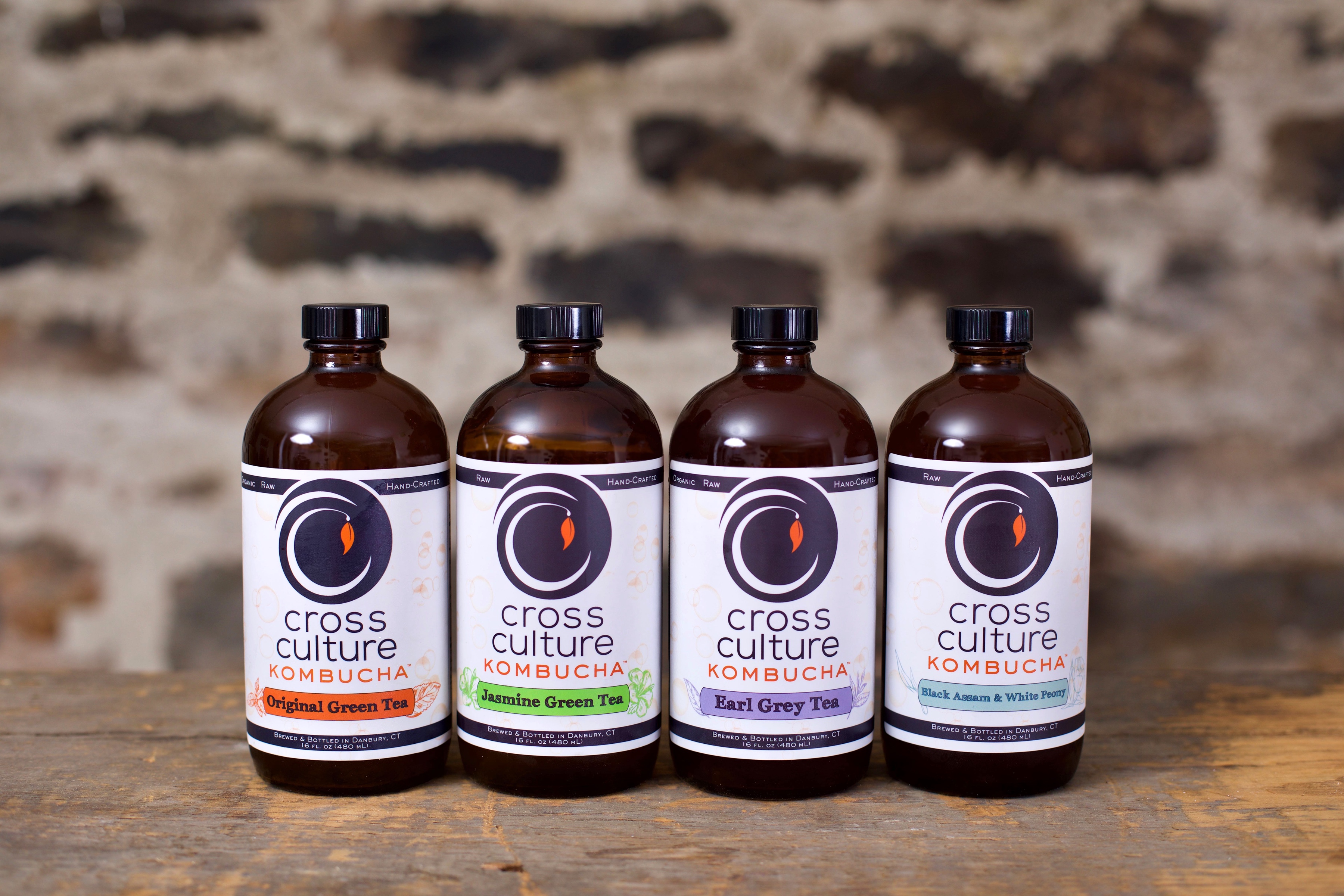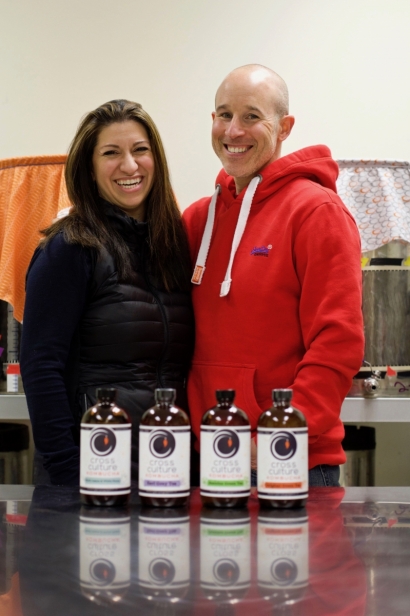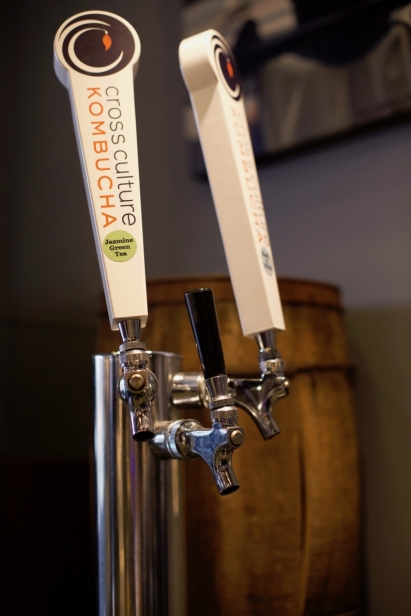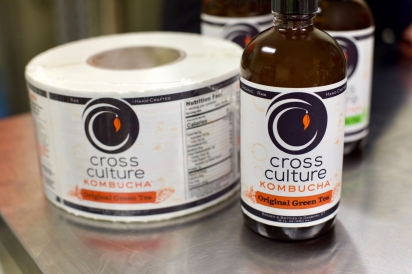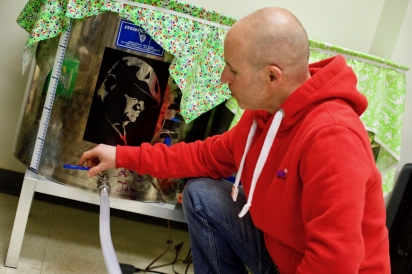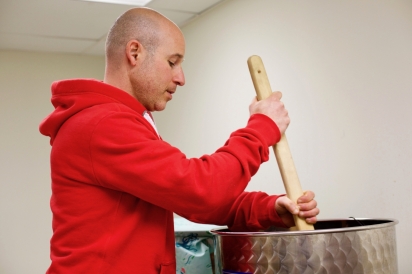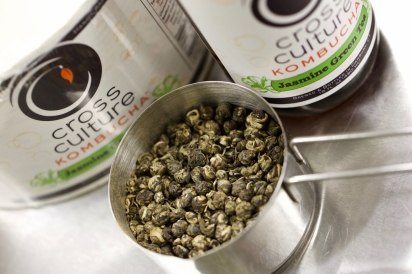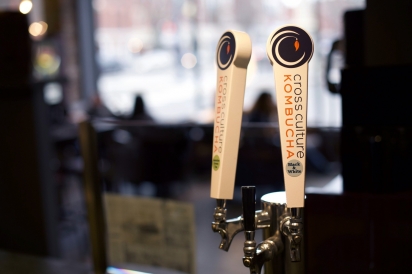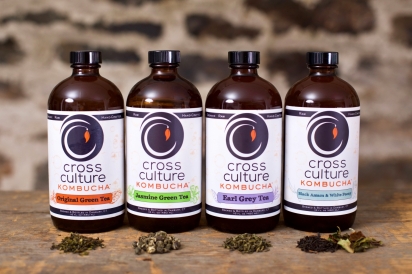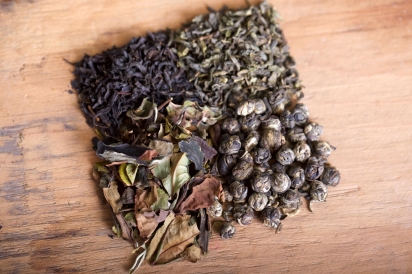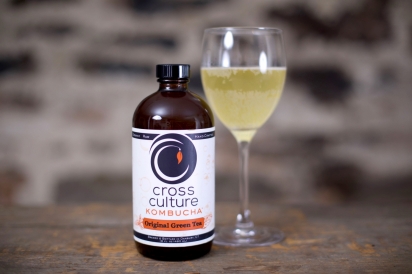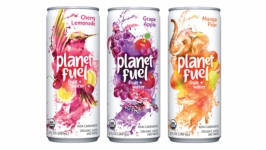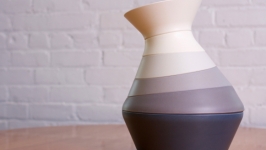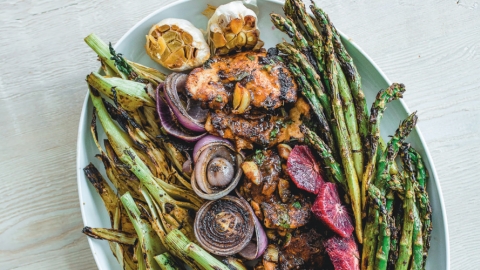Cross Culture Kombucha
Eight years ago, Ian Ceppos decided to stop drinking alcohol and start living a healthier lifestyle. Although he did not realize it at the time, it was a decision that would ultimately place him and his wife, Liz, on an entrepreneurial path.
As many startup founders will attest, lifestyle changes or milestone events can be catalysts for innovation. Interacting with a familiar product or service from a fresh point of view can reveal previously unnoticed flaws or even a void in the market. In Ian’s case, his commitment to a sober life soon led to frustration with the dearth of non-alcoholic beverage choices that social gatherings generally had to offer. “I got tired of drinking seltzer water and cranberry juice, or ‘fill-in-the-blank’ juice,” says Ian. “I longed for something more sophisticated than soda or seltzer, but my options were limited.”
Soon thereafter, a friend suggested he try kombucha. Ian liked it, and his curiosity was piqued. Liz’s brother later showed up at their home with two wine bottles filled with homemade kombucha. “It was quite good,” Ian recalls. “I thought that if he could make good kombucha, maybe I could too.”
Kombucha is a fermented and naturally carbonated tea drink. Despite the fact that it is fermented, it contains only trace amounts of alcohol. Its precise origin is unknown; some say it first appeared as recently as 200 years ago in east Russia, while others claim it is of Manchurian origin, dating back 2000 years. Its popularity in the United States began in earnest during the 1990s, as word spread of the drink’s general health benefits. Fermention of the tea requires a live culture called a “SCOBY” (symbiotic culture of bacteria and yeast). Ian procured a culture and began experimenting in his home kitchen. “My first batches of kombucha were garbage, pure vinegar,” Ian says. “Liz gets the credit for making our first good batch.”
The couple continued to experiment and refine Liz’s recipe and slowly built up their production yield to 5-gallon batches. To retain carbonation at this volume, they figured out how to store their kombucha in kegs. Before long, they purchased a 25-gallon wine fermenter and increased their production to the point where they ran out of cold-storage space. They decided to bottle some and share it with friends, who quickly relayed how much they liked it and how different it was from what was available on the commercial market. Ian began to think about starting a business.
Around the same time, Liz was reconsidering her career options. The company she worked for was in transition, and with two young kids to parent, she wondered if it was time to find a job that stimulated more passion while providing flexibility for family life.
“Starting a kombucha company really wasn’t on my radar,” say Liz, “but as my job search progressed, Ian kept dropping hints that maybe we should do it together.” Concurrently, Ian kept his kitchen experiments going, and despite the clutter of jars and containers of tea leaves (not to mention the powerful aroma from the fermentation), Liz soon came around to the opportunity. “I was about to turn 40 and thought, ‘Why don’t I choose to do something for myself?’” she recalls.
Her commitment made, Liz began hunting for a commercial kitchen and researching what they needed to know about business formation and food-production compliance. In early January 2017, they formed Cross Culture Kombucha in Danbury, and by May became fully licensed to sell their first products.
Cross Culture Kombucha offers four varieties: Original Green Tea, Jasmine Green Tea, Earl Gray Tea, and Black & White. The latter is increasingly popular and Ian’s personal favorite. It is made with a combination of two vastly different teas: a strong black tea from India that is paired with a very light, white tea. It drinks almost like a light wheat beer, with a similar level of carbonation.
Many bottled kombucha brands on the market originate from the west coast and come in several flavored varieties. Some speculate that manufacturers add extra flavoring to mask the unpleasant vinegar notes that can develop when a fermented product is on the shelf for long periods of time. Cross Culture Kombucha, however, is a tea-forward kombucha, meaning that all the flavor is derived from just four ingredients: water, teas, culture, and sugar. “It’s a true art to make kombucha when you’re not adding flavors to cover up the sour and tart notes that come from vinegar,” says Ian, “but after all the trial and error, we’re very happy with the smooth, fresh-tasting batches we make.” Consumers seem to agree. Liz recalls one loyal customer from the Fairfield Farmer’s Market who told her, “your kombucha is so good, it’s going to ruin all the other kombuchas for me.”
With less than a year in the market, the brand can already be found in over 35 locations, and they have recently agreed to distribute at White Plains Hospital and Kinsmen Brewing in Milldale. These two new locations appropriately demonstrate the drink’s appeal as both a functional food and a non-alcoholic beverage option.
The initial market response has Liz and Ian optimistic about their continued growth. “It’s so rewarding to make something with your own hands that delights another person,” says Ian. “Sometimes, when I walk into a shop with a new keg, people literally clap and say, ‘Hey, here’s the kombucha guy!’”
Their rapidly growing business already has the couple working on moving into a larger production facility, which will include a taproom for customers to refill bottles. While driving growth is a huge priority, the couple envisions remaining a regional brand. “There’s lots of value to having a local kombucha option,” explains Liz. “The taste degrades the farther away the product ships. We want to be the best-tasting kombucha you can get in this part of the country.”
Local excitement is definitely fermenting for this young business. Liz and Ian’s high-quality kombucha has generated interest from first-time kombucha drinkers while also converting long-time fans over to their local brand. The couple’s business savvy combined with an authentic desire to do something positive is just the kind of entrepreneurial spirit Connecticut needs to drink up.
Cross Culture Kombucha, LLC: Danbury; 203-794-4773


